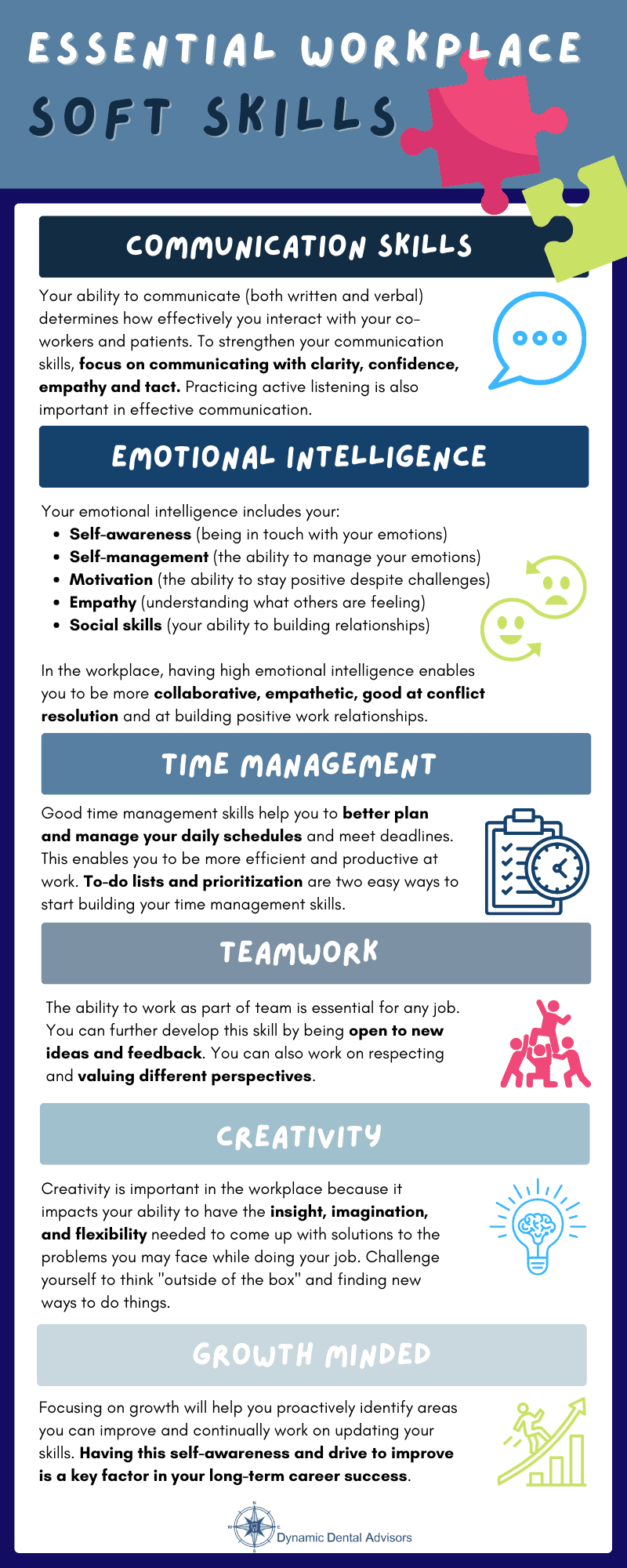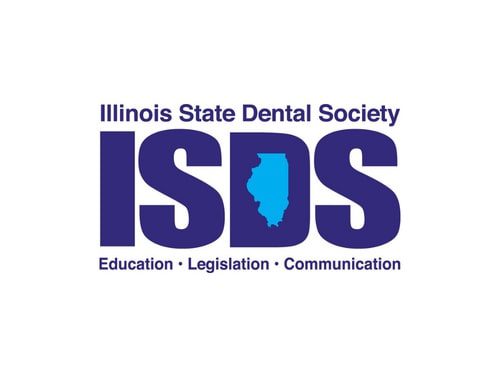Communication Skills
Your ability to communicate (both written and verbal) determines how effectively you interact with your coworkers and patients. To strengthen your communication skills, focus on communicating with clarity, confidence, empathy, and tact. Practicing active listening is also important in effective communication.
Emotional Intelligence
Your emotional intelligence includes your:
- Self-awareness (being in touch with your emotions)
- Self-management (the ability to manage your emotions)
- Motivation (the ability to stay positive despite challenges)
- Empathy (understanding what others are feeling)
- Social skills (your ability to build relationships)
In the workplace, having high emotional intelligence enables you to be more collaborative, and empathetic, good at conflict resolution, and at building positive work relationships.
Time Management
Good time management skills help you to better plan and manage your daily schedules and meet deadlines. This enables you to be more efficient and productive at work. To-do lists and prioritization are two easy ways to start building your time management skills.
Teamwork
The ability to work as part of a team is essential for any job. You can further develop this skill by being open to new ideas and feedback. You can also work on respecting and valuing different perspectives.
Creativity
Creativity is important in the workplace because it impacts your ability to have the insight, imagination, and flexibility needed to come up with solutions to the problems you may face while doing your job. Challenge yourself to think “outside of the box” and find new ways to do things.
Growth Minded
Focusing on growth will help you proactively identify areas you can improve and continually work on updating your skills. Having this self-awareness and drive to improve is a key factor in your long-term career success.








